News
-
 Health & Medicine
Health & MedicineCommon drugs help reverse signs of fetal alcohol syndrome in rats
A thyroid hormone and a blood sugar drug affect levels of a hormone needed for brain development, study in rats shows.
-
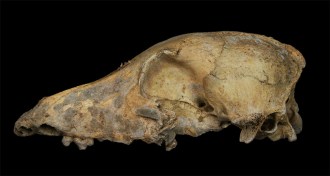 Genetics
GeneticsDog domestication happened just once, ancient DNA study suggests
DNA of ancient canines counters idea that dogs were domesticated twice, in Europe and Asia.
-
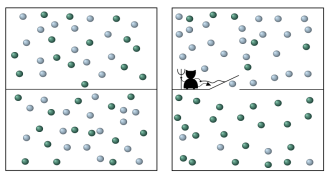 Physics
PhysicsScientists peek inside the mind of Maxwell’s demon
Scientists probe information retained by Maxwell’s demon.
-
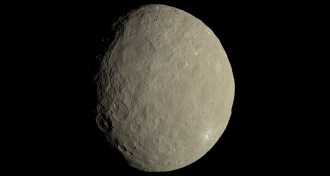 Planetary Science
Planetary ScienceGiant mud balls roamed the early solar system
The first asteroids may have been great balls of mud, which would solve some puzzling features of meteorites.
-
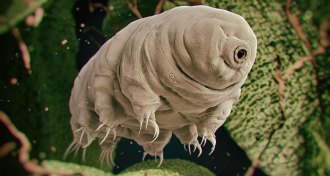 Animals
AnimalsWater bears will survive the end of the world as we know it
Water bears have a till-death-do-us-part pact with the sun, study suggests.
-
 Life
LifeThese bacteria may egg on colon cancer
Streptococcus gallolyticus may goad colon cancer growth.
-
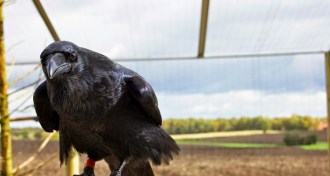 Animals
AnimalsRavens pass tests of planning ahead in unnatural tasks
Clever birds may have evolved their own broad powers of apelike thinking about the future.
By Susan Milius -
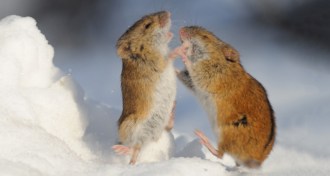 Neuroscience
NeuroscienceBrain activity helps build an alpha male
In mice, nerve cells in the prefrontal cortex influence whether an individual is dominant or submissive.
-
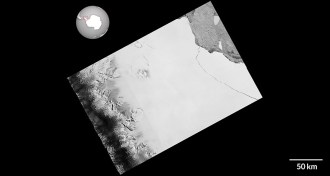 Earth
EarthDelaware-sized iceberg breaks off Antarctic ice shelf
An iceberg about the size of Delaware splintered from the Larsen C ice shelf in one of the largest calving events ever recorded.
-
 Health & Medicine
Health & MedicineThe fight against gonorrhea gets a potential new weapon: a vaccine
A vaccine used in New Zealand to curb meningitis also appeared to drop gonorrhea infections, results that hint at a way to make a gonorrhea vaccine.
-
 Neuroscience
NeuroscienceJust one night of poor sleep can boost Alzheimer’s proteins
Deep sleep may prevent the buildup of Alzheimer’s proteins.
-
 Health & Medicine
Health & MedicineDrinking sugary beverages in pregnancy linked to kids’ later weight gain
Consuming sugary drinks while pregnant may mean kids are heavier when they reach elementary school age.